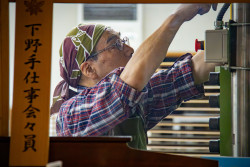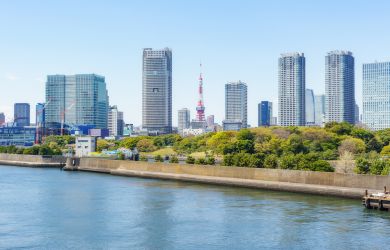
June 23, 2011
Ryo Ishikawa
The Japanese prodigy gets set to take on the world at The British Open
By Metropolis
Originally published on metropolis.co.jp on June 2011
 Heading into the U.S. Open, Ryo Ishikawa thinks he has problems. He’s missed the cut two weeks in a row. Irritatingly, at least for your average hacker, he knows exactly what’s wrong and how to fix it—and why he’s got the problem in the first place.
Heading into the U.S. Open, Ryo Ishikawa thinks he has problems. He’s missed the cut two weeks in a row. Irritatingly, at least for your average hacker, he knows exactly what’s wrong and how to fix it—and why he’s got the problem in the first place.
“All players make mistakes,” he explains. “The challenge we face is how you overcome these mistakes. At the moment, for me, it’s around the green. I need to focus on how to get better and stop making mistakes in my putting and approach shots. The tough part is that, being human, we tend to fall into a negative cycle. The more you want to get the ball into the hole, the further away it gets.” Must be the pressure getting to him.
But no. Despite being the most famous golfer in Japan, despite everyone wanting to watch him play, shake his hand, take his photo and get an interview, Japan’s golfing superstar remains undisturbed.
“People think I feel great pressure,” he says. “But I’ve never felt pressure or stress. As for the number of people in the gallery supporting me that people think is pressure, I’ve just never thought of it that way.”
Any pressure Ishikawa has comes from within.
“When people ask me if I’m always fighting or battling, I always think of my dream to win the Masters tournament. On one hand, you have a dream; on the other, you have to turn it into reality. I don’t know the distance between my dream and reality, but if I lose sight of my dream, I will lose my sense of who I am. I must ensure subconsciously that I don’t change my dream.
“The real danger is when things go well. When things are going badly, I can cling on to my dream. When things are going well, it’s possible to lose sight of your dream.”
With answers like that, it’s only a matter of time before some idiot writes a musical about him and his dreams. There’s more, of course: he wants to be nice to everybody.
“I don’t obsess about playing in the United States,” he continues. “Since I was a child it hasn’t been my ideal to play in the U.S., but to play everywhere, to become a global player.”
Ishikawa says he wants to play in Korea and Asia, as well as Europe and the States. He also says he has drawn inspiration from Korean players who have performed well overseas in recent years.
“For me, that is an inspiration because physically they are very close to the Japanese and that suggests that Japanese can do just as well.”
That kind of thinking will help him with his goals—even if it is wrong. Koreans are not similar physically to Japanese, not that it should make much difference. Where Japanese differ from their Korean counterparts is in attitude. Koreans tend to be very focused, very determined, very strong-willed and they’re not averse to stomping on people who get in their way. Ishikawa’s weakness is likely to be in his thinking rather than his game. Asked about comparisons to other rising stars, Ishikawa said:
“Rory McIlroy, Rickie Fowler and myself all have first names beginning with R, so we started being referred to as the ‘Three Rs.’ I read an article in the U.S. saying we were going to be the start of a new age in golf. When I read that, I was overwhelmed and greatly honored, but I think I’m not in the same class as those two players.”
Several years ago, Todd Hamilton was referred to as “the man who came from nowhere.” That was after he had won the British Open. In fact, he had come from the Japanese tour, the third biggest in the world. It certainly wasn’t “nowhere.” By the age of 18, Ishikawa had proved himself to be the hottest player on this tour. He has played astonishing shots under pressure on the final holes in top tournaments. He has shown he has all the golfing tools to win a major. The biggest surprise in Ishikawa’s career would be if he doesn’t win a major.
This inferiority complex is a weakness in many Japanese athletes. They look up too much to their counterparts from Europe or America or other places. Ishikawa says he wants to be a decent person, polite and well-mannered. He is, but even in the gentleman’s game of golf, you have to want to annihilate your fellow players.
In Japanese terms, Ishikawa is still a child (he’s 19). He becomes an adult in September, when he turns 20. As a person, he’s already mature beyond his years, but as an athlete perhaps he’s still got some catching up to do. He knows that the road to his dream is a long one and he’s barely started on his journey. His father told him golfers peak in their 30s, so he’s looking to peak in 10 years’ time rather than 10 months.
“There are plenty of skillful players that the world doesn’t know about yet,” Ishikawa noted. “It’s not so important to beat them now. My goal is to compete with these stars when they are in their 30s—when I’m in my 30s. That’s when I want to win.”
For now, Ishikawa is keeping the Japan professional tour as his “home” tour, but don’t expect him to hang around too long. He’s got a world to conquer—and world domination may come sooner than he thinks.
Ishikawa will be appearing at The British Open Jul 14-17.







